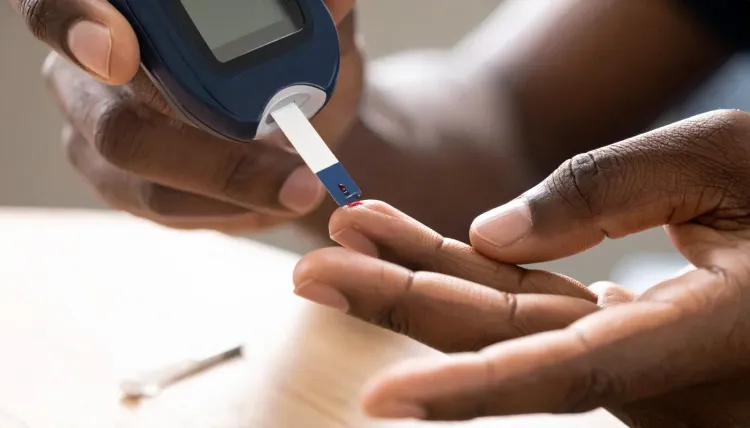How Does Diabetes Exacerbate TB and Increase Mortality?

Synopsis
Key Takeaways
- Diabetes significantly weakens the immune system.
- Patients with both conditions have higher risks of treatment failure.
- Active screening for TB in diabetes patients is crucial.
- The management of diabetes in TB patients needs improvement.
- WHO recommends thorough evaluation for TB in patients with prolonged cough.
New Delhi, Aug 5 (NationPress) Diabetes continuously undermines the immune system, resulting in deteriorating health and a heightened risk of mortality among individuals suffering from tuberculosis (TB), experts revealed on Tuesday.
The connection between TB and diabetes—both significant threats to global health—has been recognized for some time. Together, they pose considerable challenges to individuals, communities, and healthcare infrastructures globally.
India's burden of TB is a critical public health issue, with approximately 2.8 million TB cases, representing 26 percent of the world's total in 2024. The nation also recorded about 315,000 TB-related deaths, making up 29 percent of global fatalities.
The prevalence of diabetes is also on the rise in India, with over 100 million individuals currently diagnosed with the condition.
“Diabetes weakens the immune response, which escalates the risk of contracting TB. It further complicates the already vulnerable immune systems of TB patients, resulting in poor blood sugar regulation, a greater chance of treatment failures, and an increased risk of mortality during TB treatment compared to those without diabetes,” stated Hemant D Shewade, a senior medical scientist at ICMR-National Institute of Epidemiology, Chennai, in an interview with IANS.
A recent study published in the journal PLOS One, led by Shewade and his team, indicated that individuals with both TB and diabetes are two to three times more likely to remain culture-positive, four times more prone to experience a relapse post-treatment, and five times more likely to die compared to those without diabetes.
Moreover, TB treatment complicates the regulation of glucose levels, thereby diminishing the effectiveness of managing both conditions.
Shewade emphasized the necessity of enhancing the monitoring of glycemic states among TB patients with diabetes, particularly those identified by national TB programs.
At present, the program guidelines treat diabetes management uniformly for TB patients and non-TB patients.
However, “further evidence is required to determine whether strict glycemic control (HbA1C below 7 percent) is essential or if less strict control (HbA1C below 8 percent) suffices. Additionally, it remains to be seen whether insulin therapy should be universally administered to all TB-diabetes patients, regardless of their glycemic control status,” the senior scientist conveyed to IANS.
Furthermore, the study proposed utilizing the capillary fasting blood glucose (cFBG) test to evaluate the glycemic status of individuals with TB and diabetes.
Research indicates a 3.5-5.0 fold increased risk of TB among diabetes patients, particularly among those with type 1 diabetes.
These individuals also exhibit higher relapse rates following antitubercular therapy and increased mortality rates if diagnosed late. The World Health Organization (WHO) advises that patients with diabetes who experience a cough lasting more than two weeks should be evaluated for TB.
“There is a lack of comprehensive data on the prevalence of pulmonary tuberculosis (PTB) in patients with Type 1 diabetes,” mentioned Dr. Urvashi Singh, Department of Microbiology, All India Institute of Medical Sciences, New Delhi, during her discussion with IANS.
Recent findings published in the journal Multidisciplinary Respiratory Medicine, led by Singh along with Dr. R. Goswami, Dr. Randeep Guleria, and Dr. Abhilash Nair, examined the prevalence of PTB among 151 type 1 diabetes patients attending an outpatient clinic at a tertiary-care hospital.
Approximately 10.6 percent of these patients exhibited sputum culture positivity, particularly in those with a previous history of PTB.
“Thus, there is a significant prevalence of PTB among type 1 diabetes patients in India. Active screening for PTB through sputum Mycobacterium tuberculosis tests is essential to initiate prompt treatment and prevent community transmission,” Singh concluded.









